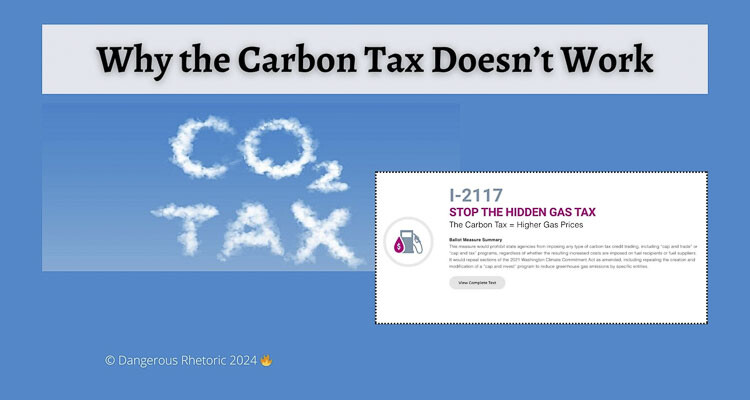
In her weekly column, Nancy Churchill addresses two assumptions about the environment
Nancy Churchill
Dangerous Rhetoric
We’re going to start with the premise that we can’t trust everything we hear or read. It’s incumbent on us to make the effort to dig deeper to understand the issues. Is there really a climate crisis? We’re going to set that question aside for today, and start with two assumptions about the environment.

Our first assumption is that we ALL want to live in a clean, beautiful and healthy environment. I believe that first assumption is universally true.
The second assumption is that carbon dioxide, created by mankind’s use of hydrocarbons, is the primary factor in the destruction of our global environment. The hypothetical mechanism of global destruction has been promoted as “global warming” or, more recently, as “climate change.” The data do not support that there is a climate emergency, but for now, let’s assume that there might be one.
If you believe global warming is caused by the excess production of carbon dioxide, of course you would support efforts to limit the production of carbon dioxide. Fair enough.
The Climate Commitment Act = cap-and-trade = cap-and-invest
This is how we got Washington’s 2021 Climate Commitment Act, also known as the CCA. The premise of the CCA is that we can reduce the production of carbon dioxide by creating a “market” for the PERMISSION to create carbon emissions. This impacts the production of electricity and hydrocarbon fuels — oil and natural gas in particular.
Under the CCA, the state government will auction off a limited number of “indulgences” to the energy producers, and use the massive amount of revenue generated by the auction to help fund favorite welfare programs, or favored industries all in the name of “environmental justice” and “climate change”.
This is known by several names: Cap-and-invest, cap-and-trade, carbon markets. All these names refer to the same thing: The auction of the RIGHT to EMIT carbon dioxide (carbon), especially via the sale of hydrocarbon fuel (natural gas, petroleum, oil, gasoline), but also via the consumption of electricity. These carbon auctions give the Washington Department of Ecology enormous control over every aspect of our economy, because affordable and reliable energy creates prosperity. Notice that the RIGHT to EMIT carbon is being auctioned. You emit carbon dioxide with every exhale. Will the right to breathe be auctioned in the future? Never mind, that’s a silly paranoid thought. Nothing to worry about… let’s move on.
Carbon taxes don’t solve the problem.
In the article “Why Carbon Taxes Won’t Work”, we discover that the “carbon tax is the magic bullet… In the case of carbon this should see firms that produce CO2 forced to reduce their emissions while renewable sources will flourish. It is an elegant theory undermined by an ugly fact: it doesn’t work, and no amount of tweaking will make it work. Such taxes do not target the profits of fossil fuel corporations and hence won’t discourage their continued production and sale of oil or gas.”
The author continues, “…carbon taxes won’t stop catastrophic climate change. The emphasis on such taxes pretends the issue is people’s personal behavior. Such taxes impact mostly on ordinary people who often have no option but to use the fuels concerned…”.
Carbon auctions don’t reduce emissions, they just create a hidden tax on the use of electricity and fuel by ordinary people like you and me. Energy producers are happy because they can still create and sell their products and make money; the added cost of the “indulgence” will be passed on to the end consumer
Politicians are happy because these auctions generate an enormous amount of revenue. In Washington state, the revenue is approximately two billion dollars in this year’s auctions. This is a massive transfer of wealth from the citizens to the government, all in the name of “save the planet!”
Carbon taxes won’t save the planet!
However, according to the theory of “Global Climate Crisis,” if emissions aren’t reduced the planet will not be saved! This is a huge flaw in the scheme. We could come up with more effective public policies that would encourage innovation without creating a regressive taxation scheme that harms the poor and middle class the most through higher gasoline prices, higher home heating prices and higher transportation costs.
Wouldn’t a better policy create more environmental justice? Wouldn’t a better policy actually work to reduce emissions? It’s almost as if the goal was to generate revenue, rather than save the planet.
Fortunately for the little people, Initiative 2117 to repeal the Climate Commitment Act’s carbon auction scheme has gathered enough signatures to be placed on our ballots this fall. In a press release, Rep. Jim Walsh, R-Aberdeen, sponsor and author of the initiative, released the following statement regarding its official introduction at the Legislature: “This is great news for working families and everyday people across Washington who have been suffering financially due to this cap-and-trade scheme. They now have hope; relief is on the way!”
The opportunity to vote to repeal the Climate Commitment Act is brought to you by your fellow citizens who signed this important initiative. Do you want to vote for lower gas and electricity prices? Be sure to vote this fall in the 2024 General Election. Your vote does make a difference!
Nancy Churchill is the state committeewoman for the Ferry County Republican Party. She may be reached at DangerousRhetoric@pm.me. The opinions expressed in Dangerous Rhetoric are her own.
Also read:
- POLL: Why did voters reject all three tax proposals in the April 22 special election?Clark County voters rejected all three tax measures on the April 22 special election ballot, prompting questions about trust, affordability, and communication.
- Opinion: The war on parental rightsNancy Churchill argues that Olympia lawmakers are undermining voter-approved parental rights by rewriting key legislation and silencing dissent.
- Opinion: An Earth Day Lesson – Last year’s biggest environmental victories came from free marketsTodd Myers argues that Earth Day should highlight free-market solutions and grassroots innovation as more effective tools for environmental stewardship than top-down mandates.
- Opinion: Time to limit emergency clauses and give voters a choiceTodd Myers urges the governor to remove emergency clauses from bills that appear intended to block voter input rather than address real emergencies.
- Letter: C-TRAN Board improper meeting conductCamas resident Rick Vermeers criticizes the C-TRAN Board for misusing parliamentary procedure during a controversial vote on light rail.










